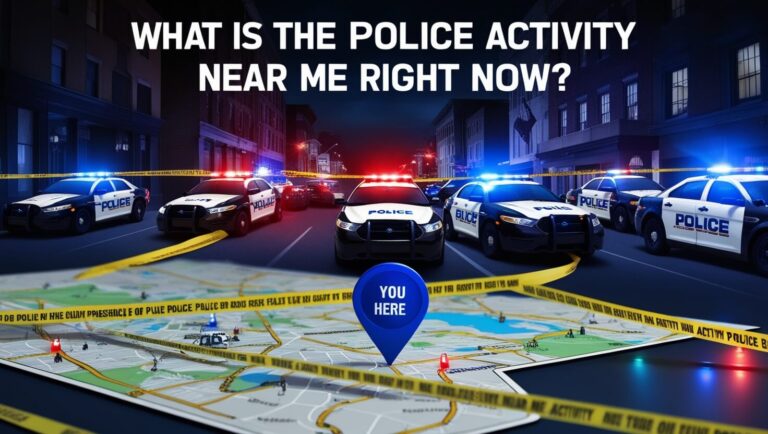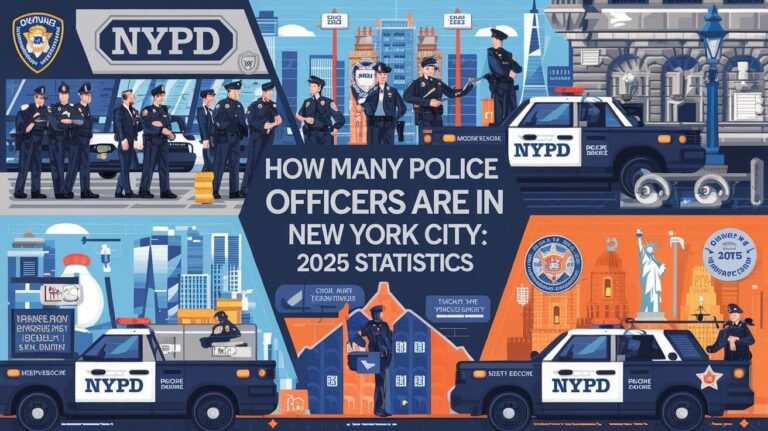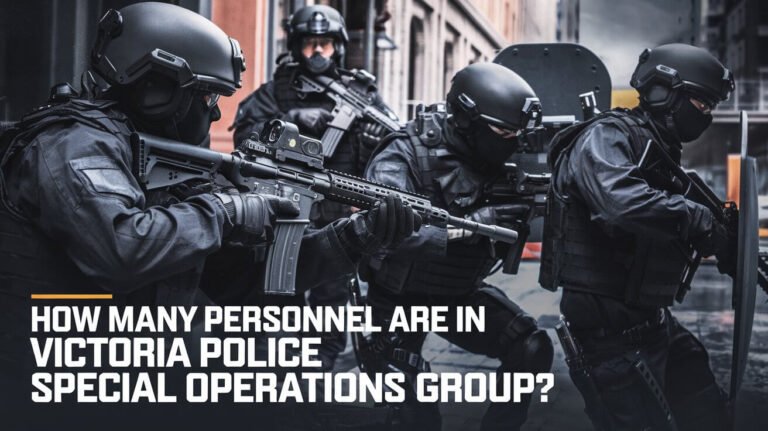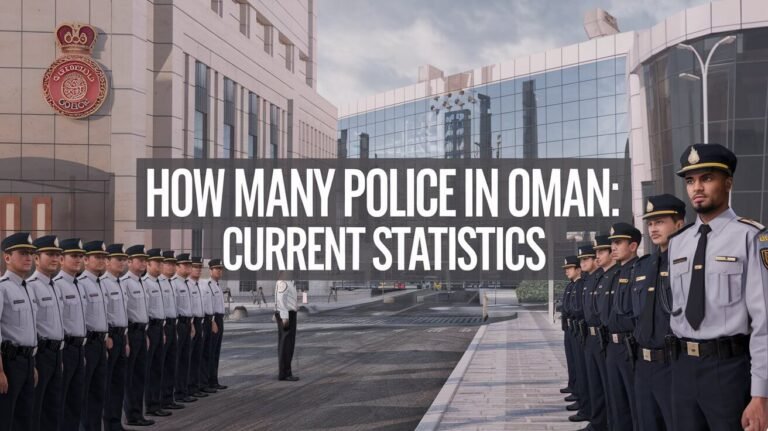What Does A Police Officer For The Navy Do? Roles & Duties
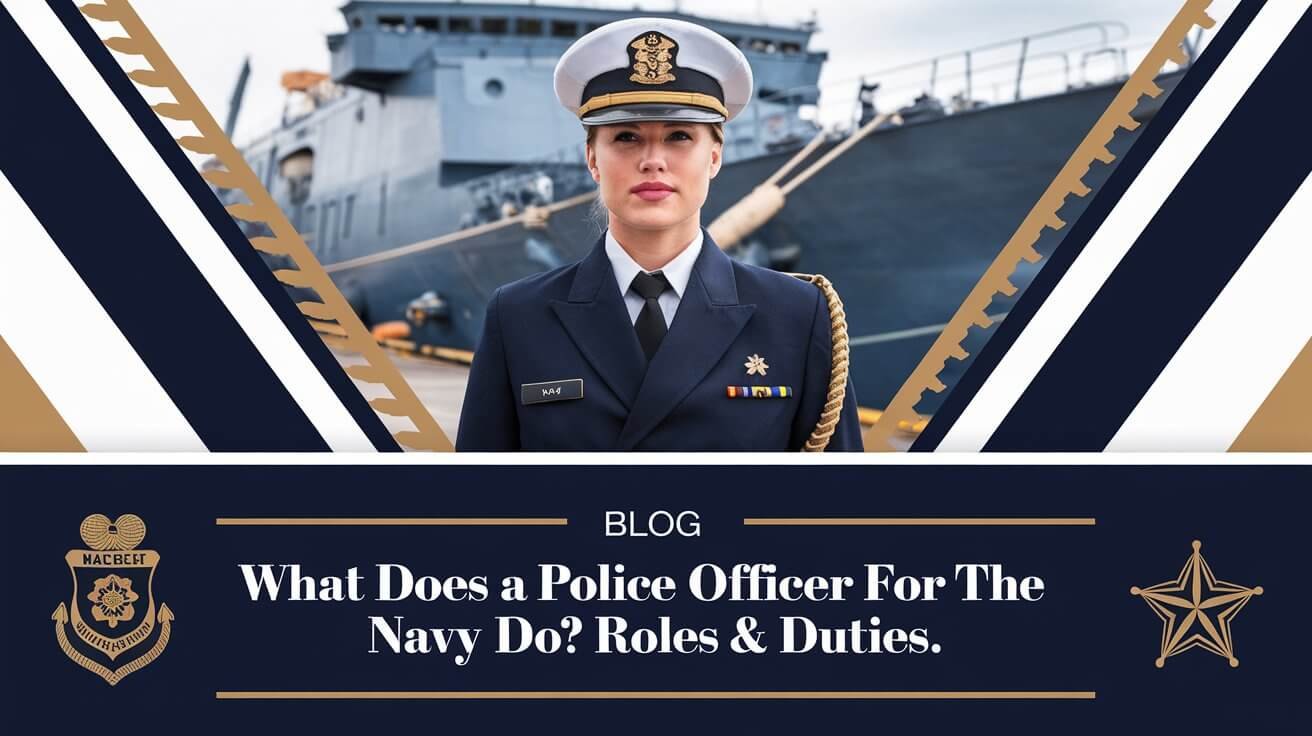
A Navy police officer is key to keeping order on naval bases and ships. They enforce military laws and protect people and assets. But what’s needed to become one, and what are their duties?
To be a Navy police officer, you need special training. You must graduate from the Federal Law Enforcement Training Center’s Uniformed Police Training Program. This shows it’s a challenging yet fulfilling job. As a Navy police officer, you help keep naval personnel and assets safe. You also follow military law enforcement principles.
Navy Police Officer Role Overview
The role of a Navy police officer is complex. They handle many tasks that need a strong grasp of military law, naval rules, and command structure. These officers work with U.S. Navy masters-at-arms to keep people, places, and things safe.
They do things like enforcing laws, protecting against threats, and keeping areas secure. Navy police officers also patrol, manage traffic, give out fines, and solve accidents. They play a key role in keeping the naval community in order.
Military Law Enforcement Authority
Navy police get their power from the Uniform Code of Military Justice (UCMJ). This code sets the rules for military law enforcement. They can only enforce laws on naval bases and ships. They must follow the chain of command, which keeps them in line with their superiors.
Jurisdiction and Scope
Navy police officers have a specific job in keeping the naval community safe. They work with other law enforcement groups to keep things in order. This teamwork helps them handle military law enforcement and naval authority well.
Chain of Command Structure
The chain of command is vital for Navy police officers. It makes sure they answer to their superiors and follow the rules. This structure helps them work well with other agencies and deal with new threats.
Daily Tasks and Operations
Navy police officers handle many tasks every day. They do patrols, security checks, and respond to emergencies. Their work is demanding and varied, needing them to be ready for anything.
They keep naval security strong by working with other teams. This includes the Operations Department and the Supply Department. Together, they make sure everyone has what they need to do their job.
Some of the main tasks for Navy police officers are:
- Conducting patrols of naval bases and ships
- Performing security checks and responding to emergencies
- Maintaining order and discipline among personnel
- Enforcing naval regulations and laws
- Collaborating with other departments to maintain naval security
To do their job well, Navy police officers need to be very skilled. They must know how to handle emergencies and keep everyone safe. Their training in both law enforcement and the military makes them key to naval safety.
| Department | Responsibilities |
|---|---|
| Operations Department | Collects, analyzes, and distributes combat information |
| Supply Department | Manages equipment and resources for personnel |
| Administrative Department | Handles personnel records and administrative tasks |
Base Security Protocols and Implementation
Keeping naval personnel and assets safe is a major focus. Base security protocols and their use are key to this effort. Navy police officers handle access control, patrols, and emergency responses. They need to know the base’s security rules and how to use cameras, alarms, and other systems.
Good base security mixes physical measures and access control. It’s about controlling who gets in, watching what they do, and acting fast when there’s a problem. Patrols are also vital to stop and find security risks. With strong security plans, the Navy can safeguard its people, things, and work.
Key Components of Base Security
- Access control management: controlling who enters the base and monitoring their activities
- Patrol responsibilities: conducting regular patrols to deter and detect possible security threats
- Emergency response procedures: responding quickly and effectively to security breaches or other emergencies
Focusing on these base security elements, the Navy keeps its people and assets safe. This is essential for naval success and national security.
Investigation and Report Documentation
Navy police officers are key in investigations and report writing. They gather evidence, talk to witnesses, and analyze data. This helps figure out what happened in a case. They also write reports that clearly show what they found.
The Naval Criminal Investigative Service (NCIS) leads these efforts. They train Navy police and work in over 191 places worldwide. They have more than 2,000 people, including over 1,000 federal Special Agents. They share criminal data through the LInX program, showing they work together well.
Some important parts of their work include:
- Starting a preliminary inquiry to see if they need to dig deeper
- Collecting evidence and talking to witnesses
- Looking at data to understand the case
- Writing reports that are easy to understand
- Reporting back to their superiors with all the details
Navy police must know how to report incidents and crimes. They use handbooks with examples and checklists for different situations. This helps them do their job well and keep the Navy safe.
Physical Fitness and Combat Training Requirements
Navy police officers need to be in top shape to do their job well. They must stay physically fit and go through combat training regularly. The Navy has high standards for physical fitness, which officers must meet to pass boot camp and fitness tests.
Officers face a physical fitness assessment (PFA) twice a year. This includes a 1.5-mile run, push-ups, and curl-ups. The standards for these tests change based on age and fitness level. For example, men aged 20-24 need to do at least 42 push-ups and run under 13 minutes and 30 seconds to pass.
Strength Standards
Strength is key for Navy police officers. They need to be strong enough to lift and carry heavy equipment. The Navy sets strength standards based on age and sex, which officers must meet to pass the fitness test.
Endurance Benchmarks
Endurance is also vital for Navy police officers. They must be able to run and swim for long periods. The Navy sets endurance standards based on age and sex, which officers must meet to pass the fitness test.
Combat Readiness Assessments
Being ready for combat is essential for Navy police officers. They go through combat training to prepare for different situations. The Navy assesses their combat readiness based on their physical fitness, such as self-defense and combat tactics.
| Age Group | Push-ups | 1.5-mile Run | Curl-ups |
|---|---|---|---|
| 20-24 | 42 | 13:30 | 50 |
| 25-29 | 38 | 14:00 | 45 |
| 30-34 | 34 | 14:30 | 40 |
The physical fitness and combat training needs for Navy police officers are tough. They must meet strict standards for strength, endurance, and combat readiness. The Navy’s requirements are based on age and sex, and officers must train regularly to stay ready for any situation.
Equipment and Technology Proficiency
Navy police officers need to be very skilled with equipment and technology. They use firearms, vehicles, and communication devices. They also have to keep this equipment in good shape and fix any problems that come up.
Some important tools for Navy police include:
- Firearms, such as pistols and rifles
- Vehicles, including patrol cars and boats
- Communication devices, such as radios and smartphones
- Security systems, including alarms and surveillance cameras
To be good at their job, Navy police officers get a lot of training. They learn in classrooms, practice with real equipment, and do simulation exercises. This training helps them handle different situations, from regular patrols to emergencies.
| Equipment/Technology | Description |
|---|---|
| Firearms | Used for self-defense and to protect others |
| Vehicles | Used for patrols and transportation |
| Communication Devices | Used for communication and coordination |
What Does A Police Officer For The Navy Do During Deployments?
Navy police officers are key during deployments. They ensure safety and security for everyone and everything. Their tasks change based on the mission and deployment needs.
They might provide security for people and things. They also do port security checks. This helps stop unauthorized access and threats.
Ship-Based Duties
Ship duties are a big part of their job. They keep the ship and its crew safe. They also make sure everyone follows the rules on board.
Port Security Operations
They also handle port security. This means working with local authorities. They help keep the port safe from threats.
International Law Compliance
They must know international law. They make sure all actions follow the rules. This includes working with other countries to solve security issues.
In short, Navy police officers are essential during deployments. They handle many tasks to keep everyone safe. These include ship duties, port security, and following international law. They need a lot of training and dedication for this job.
Career Advancement Paths
Navy police officers have many career paths to explore. They can take part in training programs and look for promotion opportunities. These paths can lead to roles like anti-terrorism training or criminal investigation courses. With hard work and dedication, they can move up in their careers, facing new challenges and responsibilities.
Some possible career paths for Navy police officers include:
- Specialized training programs, such as anti-terrorism training or criminal investigation courses
- Promotion to higher ranks, with increased leadership responsibilities
- Transfer to other branches of the military or to civilian law enforcement agencies
- Opportunities to work in naval paths, such as ship-based duties or port security operations
In the Navy, moving up in your career depends on your motivation, ability, and work ethic. With determination, Navy police officers can reach their career goals. They can make a big impact in the naval community. The Navy offers many paths for growth and success in careers related to law enforcement and naval duties.
Specialized Training Programs
Navy police officers get special training to improve their skills. They learn about anti-terrorism and maritime law enforcement. This training helps them do their jobs well.
They also learn how to handle criminal investigations. This training is key for them to solve crimes effectively.
Training Programs
- Anti-terrorism training: provides officers with the skills and knowledge needed to respond to terrorist threats and incidents
- Maritime law enforcement training: provides officers with the skills and knowledge needed to enforce maritime laws and regulations
- Criminal investigation courses: provide officers with the skills and knowledge needed to conduct thorough and effective investigations
These training programs are vital for Navy police officers. They keep them updated with new techniques and technologies. This ensures they can handle various situations, from terrorist threats to enforcing maritime laws.
| Training Program | Description |
|---|---|
| Basic Police Officers Course (BPOC) | 60 days of classroom and hands-on instruction |
| Field Training Officer course | training in field training procedures, liability, communications, and evaluation methods |
| Patrol Rifle course | handling, maintenance, and firing of the M-16/M-4 rifle, with live fire training each day |
Collaboration With Civilian Law Enforcement
Navy police officers team up with civilian law enforcement to share info and resources. They work together to stop and handle crimes. This teamwork is key to keeping communities safe.
Through naval cooperation, Navy police officers help civilian agencies. They build trust and cooperation between the military and local communities.
Navy police and civilian law enforcement can collaborate in many ways. For instance:
- Sharing intelligence and information to prevent and investigate crimes
- Providing training and resources to support civilian law enforcement operations
- Coordinating efforts to respond to emergencies and disasters
By teaming up, Navy police and civilian law enforcement can achieve great things. They make a big difference in keeping communities safe. This collaboration is vital for both sides and is a big part of naval cooperation.
Benefits and Compensation Package
Navy police officers get a great benefits and compensation package. This package shows appreciation for their hard work and sacrifices. It gives them the support they need to do their job well.
The package includes base pay, military allowances, and health and retirement benefits. This helps them in many ways.
Being a Navy police officer comes with a good pay package. Pay varies based on where you are. For example, engineers get special pay rates all over the world.
They also get overtime pay or time off for working long hours. The Basic Allowance for Housing (BAH) and the Basic Allowance for Subsistence (BAS) are part of the package too.
Key Benefits
- Up to 75% employer contribution to health plan premiums
- 33% of basic life insurance premiums paid by the employer
- Eligibility for survivor and disability benefits after 18 months of civilian service
- Retirement annuity for life can begin as early as age 55
The naval package offers many benefits for Navy police officers and their families. With a good compensation package and benefits, being a Navy police officer is a rewarding career.
Conclusion
The role of a Navy police officer is key to keeping naval personnel, assets, and facilities safe. These officers need a wide range of skills, like military law enforcement and emergency response. They help protect the chain of command and keep naval operations running smoothly.
Navy police officers go through tough training to get better at physical fitness and combat. They also learn to use the latest equipment and technology. Working with civilian law enforcement agencies makes the security even stronger. The Navy rewards these officers with great benefits and pay for their hard work.
The Navy faces many security challenges, and its police officers are at the forefront. They follow strict standards of professionalism and ethics. This helps keep the naval community safe at home and abroad. Their skill and dedication make the Navy a strong protector of its people and assets.
Frequently Addressed Questions
What are the primary responsibilities of a Navy police officer?
Navy police officers enforce military laws and protect personnel and assets. They keep order on naval bases and ships.
What is the source of the Navy police officer’s law enforcement authority?
Their authority comes from the Uniform Code of Military Justice (UCMJ). It outlines military law enforcement rules.
What is the scope and jurisdiction of a Navy police officer’s authority?
They work on naval bases and ships. Their actions follow the chain of command.
What are the daily tasks and operations of a Navy police officer?
Daily tasks include patrolling, security checks, and emergency responses. They keep the area safe.
What is the importance of base security protocols and implementation for a Navy police officer?
They manage access, patrol, and handle emergencies. Knowing security protocols is key.
What is the investigation and report documentation process for a Navy police officer?
They conduct investigations, gather evidence, and document findings. They must follow incident reporting procedures.
What are the physical fitness and combat training requirements for Navy police officers?
They need to meet strength, endurance, and combat readiness standards. They perform various physical tasks and combat training.
What equipment and technology proficiency is required for Navy police officers?
They use firearms, vehicles, and communication devices. They must also know how to maintain and repair this equipment.
What are the duties of a Navy police officer during deployments?
During deployments, they provide security on ships and at ports. They must also follow international law and protocols.
What are the career advancement paths available to Navy police officers?
They can take specialized training and aim for promotions. They may also transfer to other military branches or civilian agencies.
What specialized training programs are available to Navy police officers?
They can take anti-terrorism, criminal investigation, and maritime law enforcement training. These programs enhance their skills.
How do Navy police officers collaborate with civilian law enforcement agencies?
They share information and resources with civilian agencies. This builds trust and cooperation between the military and civilian communities.
What is the benefits and compensation package for Navy police officers?
They receive base pay, allowances, healthcare, and retirement benefits. They may also get hazardous duty pay and special duty pay.


